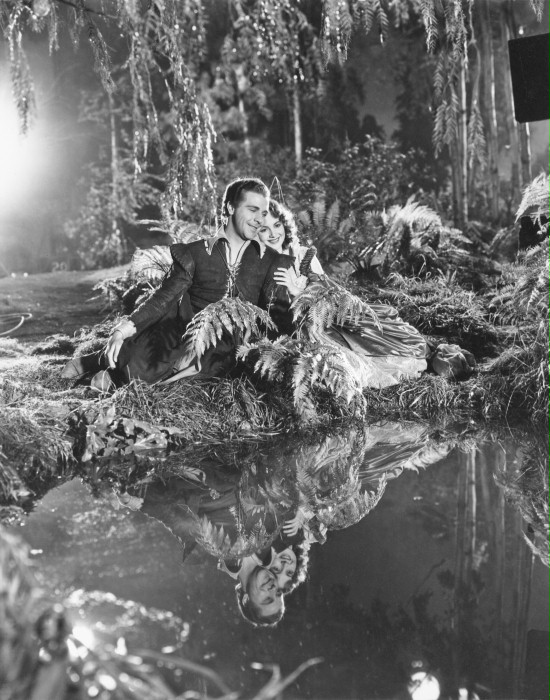
This weekend, the 63th Berlinale comes to a close. On Saturday, a winner will be chosen and awarded the Golden Bear to reflect superior achievement in film making. However, before all that pomp and circumstance, ECLA of Bard’s film instructor, Prof. Dr. Matthias Hurst, has recommended to the Die Bärliner community the following films in “The Weimar Touch” section of the Berlinale, which will be shown over the weekend.
Films created during the time of the Weimar Republic (1918-1933) astutely capture Germany’s fascinatingly complex political climate. Fraught with tension, the nation struggled with the influx of democracy, the loss of a world war, staggering unemployment and economic instability. With the dawn of 20th century, film become an established aesthetic medium in the Weimar Republic, which sought to make its own distinct impression on the broader artistic community. As a consequence, a myriad of uncensored, avant-garde work began emerging. Berlin itself became an epicenter for progressive European art, which witnessed advancements in literature, painting, and (of course) cinema.
Drawing now upon a broader historical perspective, America at that time shared many of the social and political ailments that plagued the wounded European nation. Prevailing uncertainly was shared by both countries and peoples. Such a sentiment is reflected in German and American film from that period, which possibly engendered the US’ fascination with their cinema. The ‘Weimar Wave’ (as it became known in the States) was influenced, however, not by German film aesthetics, but by the very actors and directors who began their careers in Berlin and subsequently immigrated to the States during the 20’s and 30’s for various reasons. Among them were Ernst Lubich, Friedrich Murnau and Fritz Lang, who continued to express their relationship with Europe and their homeland by producing critical films about the Nazi regime during the Second World War. Various other German artists contributed in this manner by playing the part of Nazi soldiers in many Hollywood films.
When considering the merits of its aesthetic qualities, the ‘Weimar Wave’ is chiefly categorized as Expressionistic. Such a movement is not limited to a singular genre, but extends across comedy, social criticism, tragedy, fantasy and epics. The traits of Expressionism are black & white contrast and an ambiguous play of light and shadow. Created more than 50 years ago, films influenced by the Weimar Touch remain quite modern in ways that extend beyond the technological advancements concerning visual storytelling. Ideas of objectivity, class struggle, political ideology, human comedy and gender are all given novel reconsideration by this dynamic artistic frame.
Top-6 films from “The Weimar Touch” retrospective to watch over the weekend:
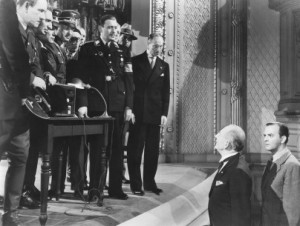
1. To Be or Not to Be by Ernst Lubitsch (USA, 1942) – an anti-Nazi dramatic comedy. A troupe of actors is rehearsing an anti-Nazi play, but political pressure forces them to switch to “Hamlet”. After the German invasion of Poland, a spy arriving from England intends to pass information about the Polish resistance to the German occupiers…
Screenings: Friday, 15.02, 19.00 (CinemaxX 8), Sunday, 17.02, 21.30 (CinemaxX 8)
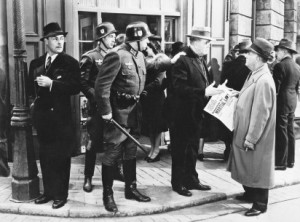
2. Hangmen Also Die! by Fritz Lang (USA, 1943) – a film about the brutality and injustice of the Nazi system. Following the assassination of Nazi “Reich Protector” Heydrich, Masha Novotny, a professor’s daughter, hides the culprit in her parents’ apartment. When the Gestapo take 400 people hostage in retaliation, Masha’s father is among those arrested. The assassin, Dr. med. Svoboda, manages to escape, however. As they search for him, the Gestapo also trains their sights on Masha. ..
Screening: Sunday, 17.02, 11.30 (CinemaxX 8)
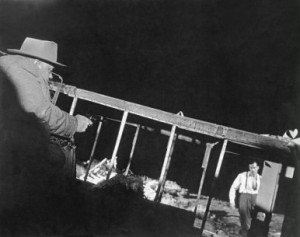
3. Touch of Evil by Orson Welles (USA, 1958) – the peak of film noir and one of the last films in this genre. A car bomb kills a wealthy American in a US border town. Mexican narcotics cop Miguel Vargas and his wife, Susan, witness the crime. Vargas gets involved in the investigation, headed by corrupt US police captain Hank Quinlan. Meanwhile, one of Vargas’ Mexican drug cases comes back to haunt him, when the dealer’s thugs harass Vargas’ wife, Susan, before drugging and kidnapping her.
Screening: Saturday, 16.02, 13.30 (CinemaxX 8)
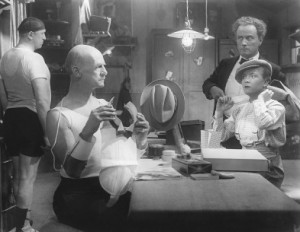
4. Viktor und Viktoria by Reinhold Schünzel (Germany, 1933) – a musical comedy about the fluidity of gender, which is infused with a bit of erotic humor. It is “impossible” to find Victor and Victoria jobs as actors and singers. But Victor at least gets engagements as a female impersonator. One day he falls ill, so Victoria stands in for him: She pulls on a pair of trousers and now – as a woman – acts as the part of a man playing a woman…
Screening: Sunday, 17.02, 17.00 (Zeughauskino)

5. Some Like it Hot by Billy Wilder (USA, 1959) – a brilliant musical with Marilyn Monroe. In 1929 Chicago, Joe and Jerry, two jazz musicians, accidently witness the St. Valentine’s Day massacre. They dress as women and join a women’s band headed for Miami. “Josephine” tries to put the make on the band’s singer, Sugar, while “Daphne” catches the eye of millionaire Osgood Fielding III …
Screenings: Saturday, 16.02, 21.00 (Zeughauskino), Sunday, 17.02, 19.00 (CinemaxX 8)
6. A Midsummer Night’s Dream by Max Reinhardt (USA, 1935) – created by the famous stage director Max Reinhardt, the film is an artistic mixture of theatre and cinema. In Shakespeare’s comedy of romantic errors, the woodland is the star, a stage for both humans and sprites. Young lovers Lysander and Hermia have escaped Athens, pursued by Hermia’s would-be husband, Demetrius. In the forest, they meet up with Oberon and Titania, king and queen of the fairies. Oberon instructs the fairy Puck to use a magical herb causing love at first sight. Meanwhile a troupe of actors also roams the underbrush. The result is a riot of love and confusion …
Screening: Saturday, 16.02, 18.00 (Zeughauskino)
Have a nice weekend and remember: if you don’t manage to get the tickets for the screenings, just check some of these films in our library!
Film stills and descriptions – Berlinale official website.
